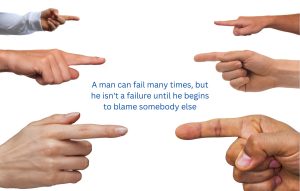The Power of Inner Peace: Developing Emotional Resilience at Work

In every workplace, we encounter a variety of personalities. Some are inspiring, others supportive, and, sometimes, we run into people who make our days a little harder. One of my bosses was moody and unpredictable, and prone to outbursts that felt disproportionate to any minor error (often no errors were even occurring, just their misunderstanding). At first, each encounter left me shaken, my heart racing as I tried to figure out what I’d done wrong. I felt like I was back to being a child, shrinking under the disapproving voice of an authority figure.
But over time (and believe me, it took years!), I realized something powerful: I wasn’t the one at fault.
Realizing this was the first step in changing my experience. I understood that their emotional reaction was a reflection of them, not of my actions or my worth. It didn’t happen all at once, but gradually I began to reclaim my own peace. It went through stages—initial anger, a sense of pity, and finally, compassion. Over time, I found that their anger no longer affected me in the same way. I could sit there calmly, unshaken (well, almost), because I knew it was their issue, not mine.
If you have a boss (or parent, sibling, partner, friend etc.) liket that, learn to reclaim your inner peace and power. Just because someone else is emotionally volatile doesn’t mean we have to mirror that instability.
Emotional resilience is an invaluable skill in the workplace—and one that takes time and intentionality to cultivate. By realizing that other people’s emotional outbursts are their own, we can protect ourselves, reclaim calm, and sometimes even find compassion for those who struggle with their own self-control.
Steps to cultivate emotional resilience
- Acknowledge the impact without personalizing it
It’s easy to internalize harsh words, especially when they’re coming from someone in a position of authority. But separating their reaction from your self-worth is essential. Recognize how it makes you feel, but remind yourself that their anger is about them, not about you. I once got a great advice, think like an inpenetrable dome of teflon around you when you meet that kind of person, it helps - with time and practice - to detach from the situation. - Shift your perspective
Moving from feeling anger to pity or compassion isn’t about letting someone off the hook, it’s about giving yourself freedom. By viewing the person as flawed, you take away their power to control your emotions. You see them as someone dealing with their own issues, and this recognition can replace fear with a calm sense of understanding. - Practice mindfulness techniques
During difficult moments, grounding exercises and mindful breathing can help you stay present and calm. Techniques such as slow breathing or counting can help regulate your response, giving you space to feel in control even in stressful situations. It is hard and might take years to learn, but it will come. And when you can do it, the feeling is incredible! - Set boundaries with confidence
While emotional resilience helps us cope internally, it’s also vital to protect yourself from further harm. If a boss’s behavior is abusive or intolerable, remember that you have a right to voice your concerns or seek help from HR or other support systems. Boundaries are a form of self-care. - Focus on self-compassion
Allow yourself to experience any emotions that arise without judgment. Feeling scared, frustrated, or angry is natural, but show yourself the kindness you wish to receive from others. Self-compassion helps build an internal strength that stands firm, regardless of how others behave.
Takeaway message. Encountering people like my ex boss can be challenging, but they also offer us a unique opportunity to grow. Emotional resilience allows us to maintain our inner peace in situations beyond our control. By understanding that their behavior is a reflection of their struggles, not of our worth, we give ourselves permission to thrive, undisturbed. When we can hold on to our calm and respond with compassion instead of fear, we rise above negativity and empower ourselves to lead with strength, no matter who we encounter.

